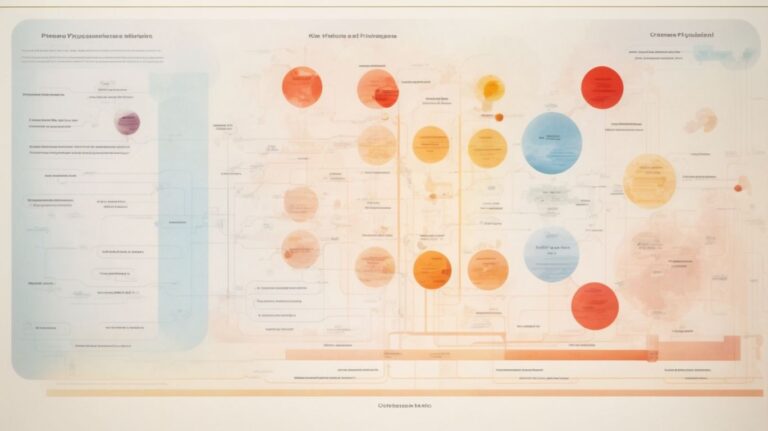Have you ever heard of the term “eustress”? While stress is often seen as a negative force, eustress actually has positive effects on the body and mind.
In this article, we’ll explore the differences between eustress and distress, as well as how eustress can affect the body. We’ll also delve into the common causes of eustress and provide some tips on how to experience it in your own life. So, let’s explore the positive side of stress in psychology and how it can actually benefit us.
Contents
What Is Eustress?
Eustress, a term coined by endocrinologist Hans Selye, refers to positive stress that can promote health, motivation, and productivity, as recognized by the American Psychological Association.
This type of stress differs from distress, which is the negative form of stress, as it can lead to significant psychological and physical health implications.
When individuals experience eustress, it can serve as a driving force, enhancing their employee experience by fostering a sense of accomplishment and fulfillment in their work.
Eustress can also fuel motivation, pushing individuals to achieve their optimal performance, thereby contributing to stress management strategies and building resilience against negative stressors.
Embracing eustress can lead to a more engaging, inspiring, and productive environment, benefiting individuals and organizations alike.
What Are The Differences Between Eustress and Distress?
Eustress and distress represent contrasting forms of stress, with eustress being a positive phenomenon beneficial to health and motivation, while distress is linked to negative impacts on mental health, particularly during challenging times such as the COVID-19 pandemic.
It’s essential to understand that eustress and distress impact individuals differently, and being able to differentiate between the two is crucial for maintaining mental well-being.
Eustress, often referred to as positive stress, arises from situations that are perceived as challenging but manageable, leading to feelings of excitement and fulfillment. This form of stress can enhance focus, performance, and overall psychological resilience.
On the other hand, distress results from overwhelming or unmanageable situations, causing feelings of anxiety, fear, and hopelessness. During the COVID-19 pandemic, distress has become increasingly prevalent due to various factors such as uncertainty, isolation, and financial strain.
Physical Response
The physical response to eustress typically involves heightened arousal and activation of the body’s adaptive systems, often manifesting as an energizing force, whereas distress may lead to adverse physical effects such as increased heart conditions and activation of the fight-or-flight response, in accordance with Hooke’s Law.
When experiencing eustress, the body releases hormones like adrenaline and cortisol, increasing heart rate, blood pressure, and overall alertness. This response is adaptive and can enhance performance, motivation, and resilience in facing challenges.
In contrast, distress triggers a prolonged activation of the fight-or-flight response, leading to chronic wear and tear on the body, potentially contributing to the development or exacerbation of various heart conditions.
This prolonged stress response can have deleterious effects, compounding the risk of cardiovascular issues.
Emotional Response
Eustress commonly evokes positive emotional responses, fostering a sense of excitement and engagement, while distress may trigger negative emotions such as anxiety and depression, underscoring the importance of psychological safety in managing stressors.
Understanding the distinction between eustress and distress provides valuable insights into the impact of stress on an individual’s mental well-being.
When individuals experience eustress, they often feel motivated and invigorated, leading to improved performance and productivity. On the other hand, distress can lead to feelings of overwhelm, hopelessness, and a decline in mental health.
Therefore, promoting a supportive and psychologically safe environment becomes crucial in mitigating the adverse effects of distress and fostering resilience against stress-related challenges.
Cognitive Response
The cognitive response to eustress is often linked to improved cognitive function and a mindset of optimism, while distress can lead to cognitive impairments and a pessimistic outlook, as recognized by research at Stanford University.
Optimism, a key feature of eustress, is associated with positive cognitive effects, such as enhanced problem-solving abilities and increased mental flexibility.
Research at Stanford University has demonstrated that individuals experiencing eustress tend to exhibit improved memory retention and faster information processing, contributing to an overall sharper cognitive performance.
In contrast, the cognitive impact of distress, in conjunction with a pessimistic mindset, can manifest in reduced cognitive capacity, impaired decision-making, and diminished creativity.
Such conclusions underscore the interconnectedness of cognitive responses, emotional states, and mindset, emphasizing the significant role they play in shaping an individual’s overall cognitive function and thought processes.
Behavioral Response
Eustress often leads to adaptive and proactive behavioral responses, particularly observed in high-performing athletes, aligning with the theme of this year’s World Health Day that emphasizes the role of motivation and positive stress in shaping behaviors.
Eustress, also known as positive stress, can ignite a sense of inspiration and determination in individuals, compelling them to strive for excellence and push their limits.
This is a prevalent phenomenon in the realm of sports, where athletes often harness the energy of eustress to elevate their performance levels. The motivation derived from eustress encourages individuals to take on challenges with zeal and a growth mindset, enabling them to adapt and thrive in demanding situations.
How Does Eustress Affect The Body?
Eustress exerts a profound influence on the body, enhancing motivation, performance, memory, and bolstering the immune system, while also fostering resilience in the face of challenges.
This positive form of stress activates the body’s biological responses, triggering the release of endorphins and neurotransmitters, such as dopamine and serotonin, which play a pivotal role in regulating mood and focus.
Consequently, individuals experience heightened alertness, creativity, and problem-solving abilities, thus boosting overall performance in various tasks.
Moreover, eustress contributes to the strengthening of the immune system by augmenting the production of immune cells, thereby enhancing the body’s defense mechanisms against pathogens.
Increases Motivation
Eustress serves as a potent motivator, enhancing productivity and engagement within organizations, showcasing its pivotal role in talent management and organizational performance.
Research has indicated that eustress can lead to increased levels of job satisfaction, creativity, and overall well-being among employees.
When individuals experience eustress, they are more likely to feel motivated and energized, leading to a positive impact on their performance and the overall work environment.
This positive form of stress can also play a crucial role in facilitating skill development, as it encourages individuals to embrace challenges and achieve personal growth, subsequently enhancing talent management within the organization.
Improves Performance
Eustress contributes to improved performance, a phenomenon frequently observed in high-performing athletes, and increasingly leveraged through digital coaching and stress management techniques.
This positive form of stress is characterized by motivation, focus, and optimal arousal levels, leading to enhanced athletic abilities and skill execution.
Athletes experiencing eustress exhibit heightened levels of determination and drive, resulting in improved goal-setting and performance outcomes.
Enhances Memory
Eustress has been shown to enhance memory and cognitive function, as highlighted by the American Institute of Stress, particularly in response to positive changes and exciting events.
This positive form of stress, often associated with feelings of fulfillment and accomplishment, can propel individuals to adapt more effectively to challenging or exhilarating situations.
When experiencing eustress, the body’s sympathetic nervous system responds by releasing hormones, such as adrenaline and cortisol, which can optimize brain function and improve memory consolidation.
Consequently, this heightened cognitive performance can foster resilience and the ability to navigate through new experiences with confidence and optimism.
Boosts Immune System
Eustress plays a role in bolstering the immune system and promoting overall health and well-being, particularly relevant in managing stress during the challenges posed by the COVID-19 pandemic.
Eustress, often described as beneficial stress, can be a natural response to the demands and pressures of daily life, including those arising from the current pandemic situation.
It stimulates the human body to adapt and grow, potentially enhancing our immune function, leading to improved resilience against infections and diseases. This is especially crucial in the context of the COVID-19 pandemic, where maintaining a robust immune system is paramount.
By embracing eustress and harnessing its positive energy, individuals can cultivate a healthier and more balanced physiological state, contributing to their overall well-being.
Increases Resilience
Eustress contributes to the development of resilience, mitigating the adverse effects of anxiety, depression, and insomnia, reinforcing its role in promoting mental well-being.
Eustress enables individuals to perceive and respond to challenging situations with a positive mindset, fostering adaptive coping mechanisms and enhancing psychological fortitude.
By stimulating motivation, eustress cultivates a sense of accomplishment and satisfaction, which in turn reduces the likelihood of succumbing to the debilitating impacts of prolonged stress and negative emotions.
This proactive response to stressors not only bolsters mental resilience but also serves as a buffer, diminishing the risk of mental health disorders.
What Are The Common Causes Of Eustress?
The causes of eustress often stem from achieving goals, taking on challenges, experiencing positive changes, and thriving within the dynamic environment of the workplace.
When individuals set ambitious goals and work persistently towards them, the feeling of accomplishment and progress becomes a primary trigger of eustress.
Going through positive changes, such as getting married, having a child, or moving to a new place, can lead to eustress by introducing new opportunities and experiences.
The sensation of pushing personal limits and embracing challenges is another common source of eustress, as it can foster a sense of growth and mastery.
Within the workplace, the dynamic interactions, deadlines, and productivity goals can create a state of eustress, encouraging individuals to perform at their best amidst the demands of the professional environment.
Achieving Goals
The pursuit and accomplishment of meaningful goals often serve as catalysts for eustress, driving motivation, productivity, and personal growth, as acknowledged by leading digital coaching platforms such as BetterUp.
Eustress, or positive stress, can be harnessed when individuals are engaged in working towards achievable and personally significant targets. This process not only instills a sense of purpose and direction but also cultivates a deepened drive to excel.
As individuals invest their efforts in attaining their aspirations, they often experience a surge of positive emotions, contributing to heightened energy levels and enhanced cognitive functioning.
The successful attainment of set goals serves as validation of one’s capabilities, instilling a strengthened belief in one’s competence and potential.
In this way, the pursuit and fulfillment of meaningful objectives are integral in propagating eustress, ultimately leading to an enhanced sense of well-being and personal development.
Taking on Challenges
Embracing and surmounting challenges represents a notable source of eustress, particularly evident in the athletic domain and the onboarding experiences of individuals, aligned with the theme of this year’s World Health Day focusing on stress management.
In athletic endeavors, the thrill of overcoming obstacles, pushing limits, and competing at higher levels often ignites the eustress response, driving athletes to reach peak performance.
Similarly, individuals undergoing onboarding processes encounter challenges that, when tackled successfully, lead to a positive form of stress, ultimately fostering growth and adaptability. Understanding the role of eustress in such contexts is crucial for devising effective stress management initiatives promoting personal and professional well-being.
Exciting Events
Participation in and anticipation of exciting events often generate eustress, fostering enthusiasm and adaptability, while also contributing to positive changes within organizations and enhancing performance.
Exciting events have the power to instill a sense of anticipation and motivation among individuals, leading to a heightened state of arousal and eustress. This positive stress response can drive individuals to perform at their best, and when collectively experienced within an organization, it can shape a dynamic and energetic work culture.
The buzz and speculation surrounding such events often create a ripple effect, encouraging openness to change and a willingness to embrace new opportunities and challenges.
This, in turn, can result in improved performance and productivity, as individuals are fueled by the positive energy stemming from these exhilarating occurrences.
Positive Changes
Navigating and embracing positive changes can instigate eustress, contributing to the development of resilience and fortitude, particularly relevant in managing stress during the ongoing challenges posed by the COVID-19 pandemic.
Positive changes encompass various elements such as personal growth, improved relationships, career advancements, and lifestyle modifications.
These can act as catalysts for eustress, which is a form of stress that can be beneficial, enhancing motivation and performance levels.
The ability to adapt to and welcome positive changes can build a strong foundation for overcoming adversity, enabling individuals to confront mental health challenges with greater strength and optimism.
The cultivation of resilience through the influence of positive changes contributes significantly to fostering a healthier mindset and overall well-being.
How Can Someone Experience Eustress?
Experiencing eustress involves identifying stress triggers, reframing the perception of stress, practicing mindfulness and self-care, setting realistic goals, and seeking support from others to navigate stress effectively.
Identifying stress triggers is an essential first step towards managing eustress. This may involve keeping a stress journal to track patterns and identifying specific situations or events that lead to stress.
Reframing one’s perception of stress involves recognizing stress as a natural response and an opportunity for growth rather than solely a negative experience. Mindfulness practices, such as meditation and deep breathing, can help individuals cultivate awareness and manage stress effectively.
Setting realistic goals helps in creating a sense of accomplishment without overwhelming oneself. Seeking support from friends, family, or mental health professionals can provide valuable guidance and encouragement during stressful times.
Identify Stress Triggers
Identifying stress triggers is a pivotal step in managing eustress, fostering emotional well-being, and mitigating the impact of anxiety, as recognized in the field of psychology.
Understanding the eustress triggers helps individuals to cultivate a proactive approach in dealing with stress, leading to an increased sense of control and enablement.
By recognizing what specific situations or factors lead to eustress, individuals can channel their energy into positive and productive outcomes. This proactive stance towards eustress triggers enables individuals to build resilience and cope with the challenges effectively, ultimately promoting emotional balance and well-being.
Incorporating this awareness into daily life routines can aid in the long-term management of anxiety and contribute to overall psychological health.
Change Perception of Stress
Reframing the perception of stress is crucial in fostering eustress and building resilience, as advocated by stress management expert Kelly McGonigal and contemporary research on stress perception.
This shift in perspective involves recognizing that stress can be a catalyst for growth and positive adaptation, rather than just a negative force. By embracing this mindset, individuals can harness the energy and motivation brought about by stress to excel in their endeavors.
Studies have shown that when individuals view stress as a natural and manageable part of life, they are more likely to develop resilience and thrive in the face of challenges. This approach has wide-reaching implications for personal well-being, academic performance, and professional success.
Practice Mindfulness and Self-Care
Engaging in mindfulness practices and prioritizing self-care are instrumental in fostering eustress and promoting overall well-being, particularly relevant during the challenges posed by the COVID-19 pandemic and the focus on mental health.
Mindfulness, in the context of the pandemic, offers individuals the opportunity to cultivate present-moment awareness and acceptance. This can be enableing in managing the uncertainties and anxieties brought about by the circumstances. It enables individuals to acknowledge their thoughts and emotions without judgment, thus reducing their reactivity to stressors.
Integrating mindfulness into daily routines can aid in building resilience and emotional regulation. These are essential components for navigating the ongoing challenges with greater stability.
Set Realistic Goals
Setting realistic goals plays a pivotal role in cultivating eustress, driving achievement and performance within organizations, underscoring its significance in talent management and organizational success.
When individuals set realistic goals, they provide a clear path for their efforts, leading to a sense of purpose and direction. This fosters a positive form of stress known as eustress, which motivates individuals to perform at their best.
As a result, eustress not only enhances productivity at an individual level, but its cumulative impact can significantly improve overall performance and achievement within the organization.
Furthermore, eustress enables employees to stretch their capabilities and skills in a healthy manner, contributing to personal and professional growth. Organizational dynamics are also influenced as teams work towards realistic goals, fostering a collaborative and supportive environment that encourages innovation and creativity.
Seek Support from Others
Seeking support from others and nurturing social connections are fundamental aspects of managing eustress, contributing to mental well-being and mitigating the impact of anxiety and depression through community and interpersonal relationships.
Developing a strong support network can provide individuals with a sense of belonging, validation, and security, which are crucial for their overall psychological resilience.
These connections can serve as a source of encouragement, empathy, and practical assistance when facing challenging situations, thereby alleviating the feelings of isolation and hopelessness that often accompany mental health struggles.
Research has shown that individuals with robust social support are better equipped to cope with stress, maintain a positive outlook, and experience enhanced emotional stability.
Frequently Asked Questions
What is eustress in psychology?
Eustress is a term used in psychology to describe a positive and beneficial form of stress that can motivate and improve performance.
How is eustress different from distress?
While both eustress and distress involve some level of stress, eustress is considered a positive type of stress that can lead to feelings of excitement and motivation, while distress is a negative and overwhelming form of stress that can lead to feelings of anxiety and burnout.
What are some examples of eustress?
Some examples of eustress include starting a new job, taking on a challenging project, planning a wedding, or competing in a sports event. These situations can generate feelings of excitement and energy, which can enhance performance and productivity.
Can too much eustress be harmful?
While eustress is generally considered a positive form of stress, too much of it can still have negative effects on a person. It is important to find a balance and manage eustress in a healthy way to avoid burnout and exhaustion.
How can eustress be beneficial for mental health?
Eustress can be beneficial for mental health by improving mood, increasing motivation, and boosting self-confidence. It can also help individuals build resilience and copewith future stressors.




